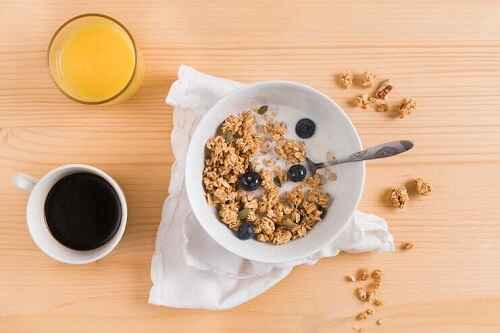
Mar 05 , 2024
In the realm of dietary choices for individuals with kidney disease, the question often arises: Is oatmeal good for kidney disease patients?
This query underscores the importance of understanding how specific foods can impact kidney health.
Oatmeal, a beloved breakfast staple for many, holds both potential benefits and considerations for those managing kidney disease.
In this blog, we delve into the nuanced relationship between oatmeal and kidney disease, examining its nutritional profile, potential benefits, and considerations for those managing kidney health.
By understanding the role of oatmeal in kidney disease management, individuals can make informed dietary choices that promote overall well-being while safeguarding kidney function.

It also has the following nutrient content:
Oats nutrients, including:
Oatmeal is a good breakfast option for some people with kidney disease because it is full of vitamins and nutrients.
It's rich in fiber and low in carbohydrates, sodium, and sugar.
People also say that oatmeal is a smart choice for people dealing with medical conditions like diabetes, heart failure, and high blood pressure, which can lead to kidney damage.
A study from 2018 found that oat intake had positive effects on kidney function in animal studies.
Well, the oatmeal effect and its impact haven't been studied in humans, research suggests that oat consumption might be beneficial for people with CKD (chronic kidney disease).
Consumption of oats can also improve levels of certain markers like serum albumin and serum potassium in CKD patients.
Another study from 2020 showed that adding grains with high β-glucan fiber, like oats, to the diet might slow down the progression of CKD and reduce vascular calcification in animal models.
Research on humans found that taking a supplement containing oat β-glucan fiber could lower levels of certain harmful substances in the blood, like TMAO, in CKD patients.
It is also important for people with kidney disease to consume less oatmeal.
While oatmeal provides many benefits, it also contains minerals like phosphorus and potassium, which can be harmful to people with kidney issues if consumed in excess.

How much oatmeal a person should consume with kidney disease on several factors such as overall health, stage of your kidney disease, and other health conditions.
Experts usually recommend people with kidney disease to consume foods low in sodium, phosphorus, protein, and potassium.
Oatmeal contains different amounts of these nutrients.
However, if your healthcare professional approves, you can safely include oatmeal in your diet.
They will consider your condition and decide whether the benefits outweigh any potential risks.
Here are some tips for preparing oatmeal:
Oatmeal is a type of oats that are processed for quicker cooking.
It's different from whole oats, which are less processed and take longer to cook.
Oatmeal often has added ingredients like salt and sugar, and it comes in various flavors like chocolate or peanut butter, which involve more processing.
There are different types of oats: whole oat groats, steel-cut oats, rolled oats, and instant oats.
For people with CKD (chronic kidney disease), certain types of highly processed and packaged oats might not be the best choice.
These oats can have high levels of phosphorus and potassium, which could strain the kidneys.
If you have stage 3 or 4 CKD, it's best to avoid or limit processed oats and choose more natural forms like steel-cut oats or whole oats.
This helps prevent adding extra burden on your kidneys.
Studies on chronic kidney disease patients found that eating oats didn't affect creatinine levels in renal patients.
Oats contain minerals like potassium and phosphorus, but they're still safe for kidney patients to eat.
When it comes to phosphorus in oats, only a part of it gets absorbed into the bloodstream because it's bound to antioxidants called phytates.
However, fortified foods with added phosphorus may get absorbed fully as they're not naturally bound to phytates.
Lifestyle Strategies
Managing kidney disease involves adopting healthy lifestyle practices. Here are some simple tips to consider:
Diet matters in managing kidney disease.
Certain foods, like oatmeal, can be beneficial for kidney health and prevent further kidney damage.
Oatmeal is a good choice for people with kidney disease because it's packed with fiber and nutrients, which can improve kidney function and lower waste levels.
But it's important to eat oatmeal in moderation since it has potassium, phosphorus, and sodium, which need to be limited or avoided in kidney disease.
While there aren't specific medications for kidney disease itself, medications for conditions like high cholesterol, heart disease and diabetes, can help prevent further kidney damage.